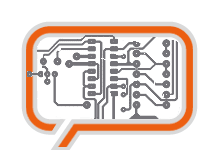A weblog focused on interesting circuits, ideas, schematics and other information about microelectronics and microcontrollers.
E-books
Disclaimer
Because I have not tested all electronic circuits mentioned on this pages, I cannot attest to their accuracy; therefore, I do not provide a warranty of any kind and cannot be held responsible in any manner.
ATMEL AVR
AVR-CDC
25. December 2008 - 23:38 — adminAVR-CDC is a pure SW based USB-RS232C interface using the CDC (Communication Device Class) protocol. Although the bulk endpoint required for CDC is not allowed within the low-speed USB standard, it works fine on major platforms.
An ultimate AVR MP3 player design
23. December 2008 - 18:22 — adminAn evolution of the homebrew MP3 player - if you are interested in building your own, here is all you need.
Infrared repeater
13. December 2008 - 23:38 — adminMCU based infrared repeater allow to control an A/V equipment that is behind a wall.
MIDI for microcontrollers
10. December 2008 - 1:37 — adminMIDI, or Musical Instrument Digital Interface, is a specification for a communications protocol between digital synthesizers and other digital music devices. It was developed to be as simple and general as possible, to give synthesizer manufacturers as much flexibility as possible, yet still have their instruments talk to each other without communication problems. Here is a simple circuit for MIDI output that works well with Wiring or Arduino, the PIC microcontrollers, the BS-2, and the BASIC ATOM Pro24.
Amforth - ATMega FORTH
6. December 2008 - 0:37 — adminAmforth is a compact forth interpreter and compiler for the atmel avr atmega microcontroller family which is implemented in assembly language and amforth itself. It is an interactive system running completly on the controller. It does not need additional hardware beyond a power supply.
MMC/SD card reader
5. December 2008 - 19:58 — adminAn AVR-based small test application which implements read and write support for MMC, SD and SDHC cards.
1-key USB keyboard
5. December 2008 - 19:54 — adminThe idea for a 1-key keyboard comes from the need as an interaction designer to make “cheap, quick and dirty prototypes.” When creating a quick screen-based demo in e.g. Adobe Flash, a common way of quickly prototyping physical actions is to assign actions to certain key presses on a keyboard.
AVR and 1-Wire interface
4. December 2008 - 14:25 — adminDallas Semiconductor (Maxim) produces a family of devices that are controlled through a proprietary 1-wire interface. On a 1-wire network, a single "master" device communicates with one or more 1-wire "slave" devices over a single data line, which can also be used to provide power to the slave devices. How to connect such devices to Arduino?
